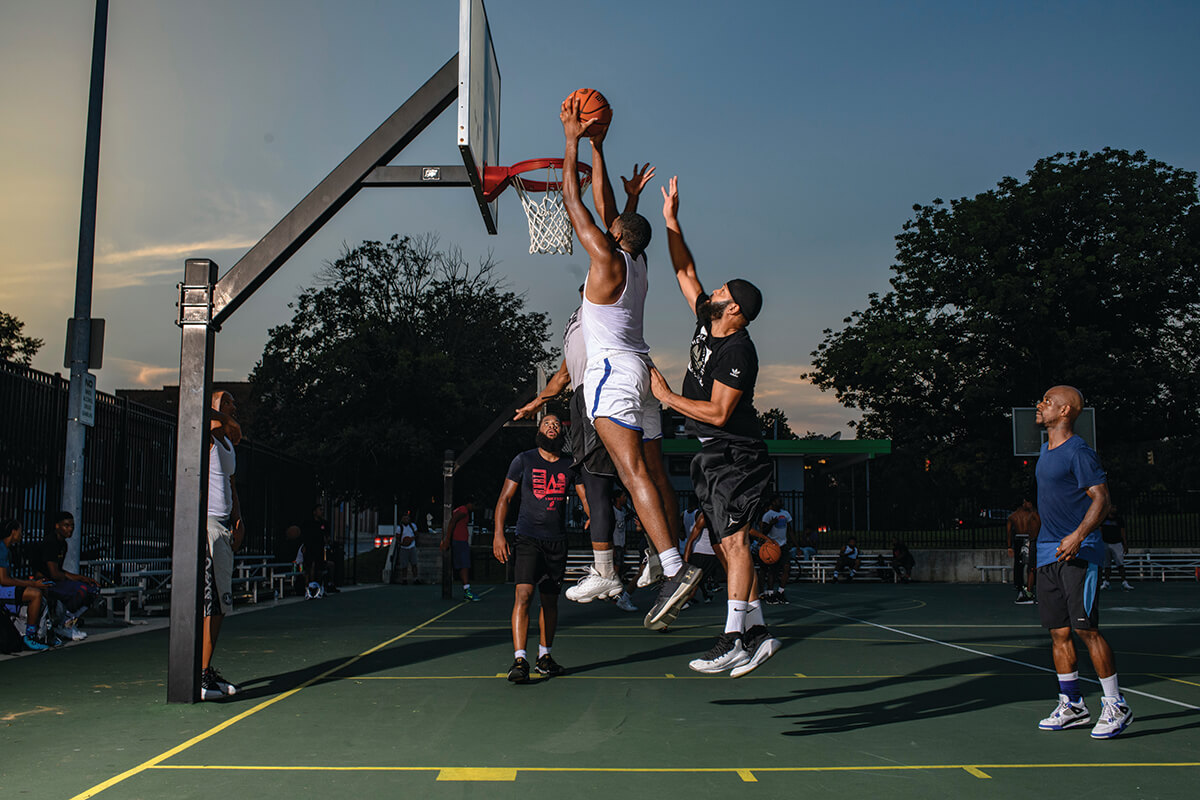Basketball
Pickup Basketball Has a Storied History in Baltimore. Is it Fading?

When the weather broke, and we were really
ambitious, we’d hit the Federal Hill courts next to
AVAM at 2 a.m., or Dorsey Road by the airport, or
Kenilworth out Towson, looking for the people looking
for us, ballplayers.
Ballplayers with sore backs,
wearing braces on both knees and cut-off T-shirts
and attitude problems. The ballplayers we looked for
on warm spring days and nights were mainly Black
men, sometimes white men who could flat-out play,
and sometimes women who didn’t find the same
joy in picking apart other women that they did in
destroying men—as if emasculating these guys and
shaking up their identity was the only thing that scratched their itch.
We could find each other on one of these
courts, all these courts at some point. We linked up together
and formed bonds with people we would never talk to under
any other circumstance, and then from park to park, we balled
harder than the sun shined.
This era has died, however.
I’m not sure if it’s because everyone is TikToking and IGing
all day, or the young people with basketball talent are treated
like celebrities and sucked into the AAU circuit. Or maybe
the younger guys noticed that our generation of ballplayers
had beat-down knees and injuries that don’t ever fully heal—
accompanied of course with stories that we don’t stop telling.
Still, either way, the courts are empty by comparison these days.
This great migration, if you will, did not happen all at
once, and you can still get a light game on some courts, but I
remember the glory days ending around 2014.
My little cousin Buck used to honk the horn twice back
then, and I’d pop out of the crib, landing right in the passenger
seat of his white Honda Accord. From there, we’d bump old Jay-
Z, mainly Reasonable Doubt and In My Lifetime, Vol. 1, and head
to one of the weaker courts in Baltimore, like 26th Street or
Caton Avenue. These visits were meant to get us warm so that
we would be ready when we made it to the actual competition,
like Boceks or Ellwood.
“This is why I only hoop indoors,” Buck said on one of
those late 2014 days when the sun was still shining, and the
courts should have been packed, but weren’t. “Nobody plays
outside anymore.”


)






